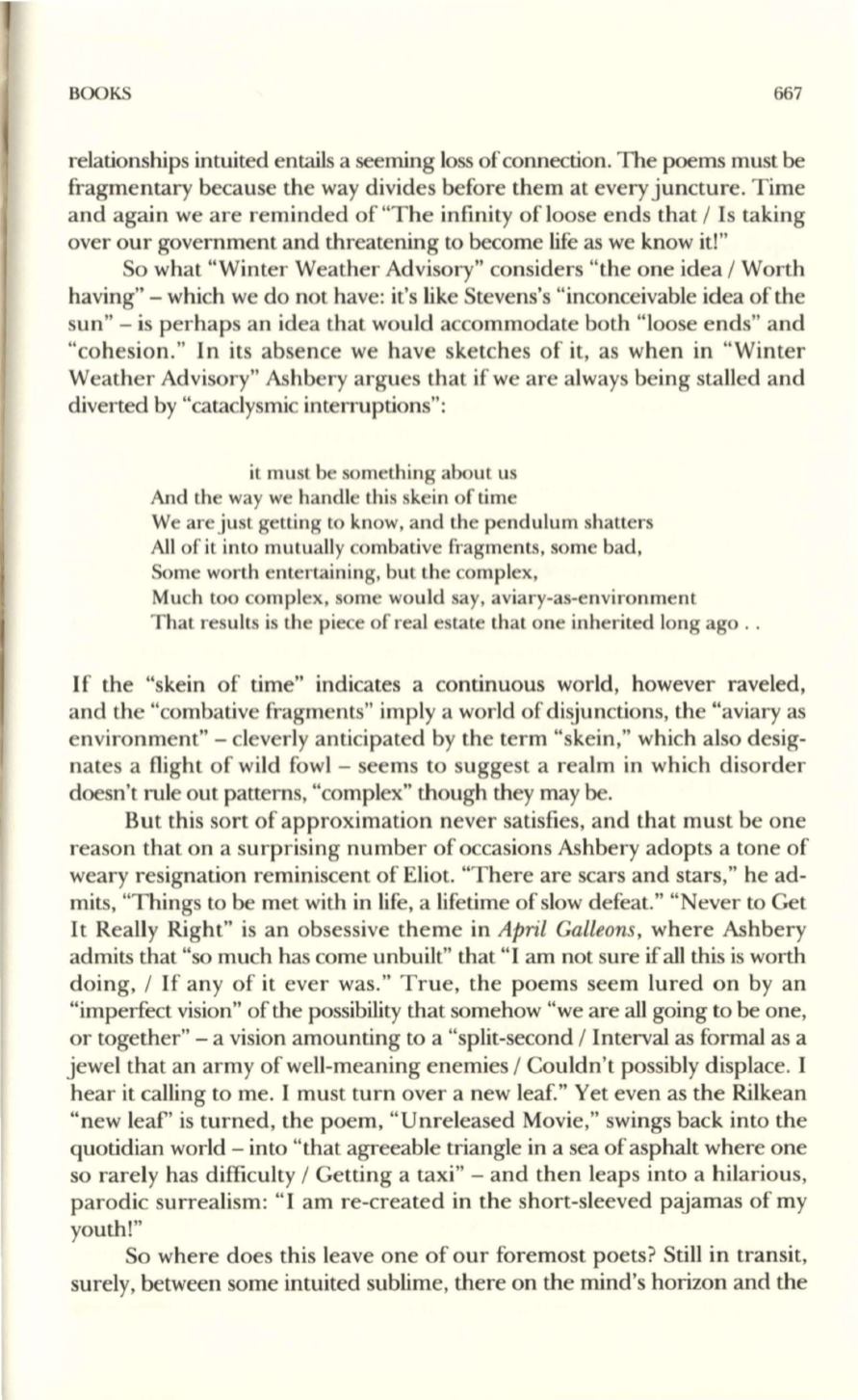
BOOKS
667
relationships intuited entails a seeming loss ofconnection. The poems must
be
fragmentary because the way divides before them at every juncture. Time
and again we are reminded of "The infinity of loose ends that / Is taking
over our government and threatening to become life as we know it!"
So what "Winter Weather Advisory" considers "the one idea / Worth
having" - which we do not have: it's like Stevens's "inconceivable idea of the
sun" - is perhaps an idea that would accommodate both "loose ends" and
"cohesion." In its absence we have sketches of it, as when in "Winter
Weather Advisory" Ashbery argues that if we are always being stalled and
diverted by "cataclysmic interruptions":
it must be something about us
And the way we handle this skein of time
We are just getting to know, and the pendulum shatters
All of it into mutually combative fragments, some bad,
Some worth entertaining, but the complex,
Much too complex, some would say, aviary-as-environment
That results is the piece of real estate that one inherited long ago ..
If
the "skein of time" indicates a continuous world, however raveled,
and the "combative fragments" imply a world of disjunctions, the "aviary as
environment" - cleverly anticipated by the term "skein," which also desig–
nates a flight of wild fowl - seems to suggest a realm in which disorder
doesn't rule out patterns, "complex" though they may
be.
But this sort of approximation never satisfies, and that must be one
reason that on a surprising number of occasions Ashbery adopts a tone of
weary resignation reminiscent of Eliot. "There are scars and stars," he ad–
mits, "Things to be met with in life, a lifetime of slow defeat." "Never to Get
It
Really Right" is an obsessive theme in
April Galleons,
where Ashbery
admits that "so much has come unbuilt" that "I am not sure
ifall
this is worth
doing, / If any of it ever was." True, the poems seem lured on by an
"imperfect vision" of the possibility that somehow "we are
all
going to
be
one,
or together" - a vision amounting to a "split-second / Interval as formal as a
jewel that an army of well-meaning enemies / Couldn't possibly displace. I
hear it calling to me. I must turn over a new leaf." Yet even as the Rilkean
"new leaf' is turned, the poem, "Unreleased Movie," swings back into the
quotidian world - into "that agreeable triangle in a sea of asphalt where one
so rarely has difficulty / Getting a taxi" - and then leaps into a hilarious,
parodic surrealism: "I am re-created in the short-sleeved
p~amas
of my
youth!"
So where does this leave one of our foremost poets? Still in transit,
surely, between some intuited sublime, there on the mind's horizon and the


